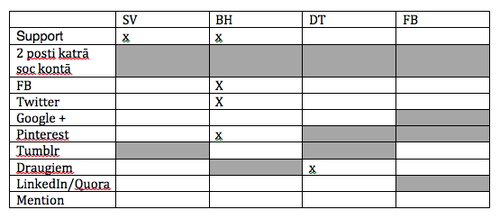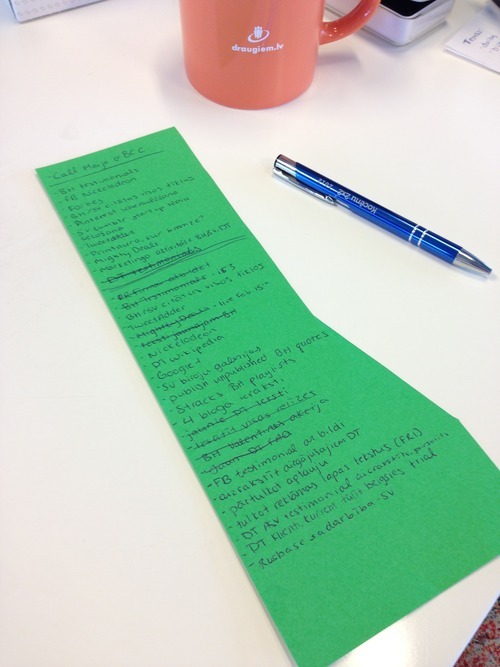How to Deal with an Overwhelming Workload

We’ve all been there – the feeling that you’re drowning under a pile of only growing work and an overwhelming workload. As the feeling overwhelms you, you think, how on earth am I going to deal with this?
This is something I’ve been dealing with recently, and in stead of simply tossing up my hands and saying it’s impossible, I decided that I owe at least myself, if not my many bosses, to at least try to conquer the glorious mountain of work.
So it’s on. I decided that I would to EVERYTHING to the maximum, use every moment I had, stretch my attention to the max. I was going to have a week of ultra-productivity.
Want to get the most out of your time?
Try DeskTime for free!
Try free for 14 days · No credit card required.
By signing up, you agree to our terms and privacy policy.

If you’re like me, a big productivity sapper is that it takes me a while to figure out where I should place my attention. I have a terrible memory for these things, that’s where I lose the most of my time.
Now this is a great post if you need only one day of ultra productivity. But one day isn’t going to cut it. So I decided I’d develop my own techniques. Very simple, anyone can do it on their own. But effective to avoid an overwhelming workload.
Spoiler: it’s all about lists, visibility, and accessibility
1. Identifying the must-do daily chores for the mountain of work
Everyone has these. The basic requirements of your daily job. Filing, answering emails, research, programming, whatever your job description includes. These are the things that people automatically expect from you, you won’t get reminders about them, but if they’re not all done perfectly by the end of the month, you’re in trouble. And a lot of times they really do make a mountain of work.
So figure out what these are. It’s one of the best ways how to deal with an overwhelming workload. For you, my job largely centers around customer support and marketing, largely posting on a variety of different social media sites, for several projects (DeskTime being only one of them – others include Behappy.me and StartupVitamins).
Make a list of things that have to be done EVERY SINGLE DAY for you to be on top of things. I made myself a chart. This is what it looked like:

Whenever I would finish one task, I check it off. I would not leave work unless this entire chart was filled every day.
The benefit: At any point in the day when you’re not sure what to be doing, work on any point in the chart. Not only can you accurately say that you’ve done absolutely everything, but you’ll always have a task at hand, and never have dead time.
2. Making a list of week-specific priorities
These are the tasks that pop up in the process of the week. Things like: lead that meeting, write that report, close that deal, translate that article, interview that person, get that Valentines day campaign running, etc.
Write them down on a separate piece of paper that’s next to you, and have it sit on your desk throughout the week. Whenever another task is asked of you, write that down
Now you know that there’s a list of things that you HAVE to get through by the end of the week. You also know that you’ll have to schedule your time accordingly.
I made my list on a piece of colourful paper that would stand out against my desk. This is what it looks like: (really low-tech, I know!)

The benefit: This list of things is beside you ALL THE TIME. When you’re stuck with the “I don’t know what to do next” issue, check your list, and you’ll see what you have to work on.
This also reminds you that you really ARE doing a lot of work, you should cut yourself some slack. Because these millions of little things add up, and end up filling your day. Then at the end of the week, when your superiors ask where all of your time has gone, then you have a very full, comprehensive list.
The result?
The end result, after a very strenuous week – I’ve had the most productive week of my life, and I’ve found a way how to deal with an overwhelming workload. The most checked-off to-do tasks, the most results to show for my work. The best part? The feeling that I’m in control of my tasks, that the workload is not overwhelming, and that nobody’s going to be disappointed about some forgotten task.
What solutions would you suggest?
Did you find this article useful? Give it a clap!
Psst! You can clap more than once if you really loved it 🙂